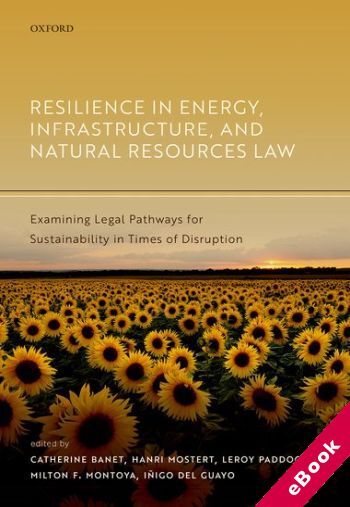We will be closed from 5pm Thursday 17th April for the Easter Bank Holidays, re-opening at 8.30am on Tuesday 22nd April. Any orders placed during this period will be processed when we re-open.

The device(s) you use to access the eBook content must be authorized with an Adobe ID before you download the product otherwise it will fail to register correctly.
For further information see https://www.wildy.com/ebook-formats
Once the order is confirmed an automated e-mail will be sent to you to allow you to download the eBook.
All eBooks are supplied firm sale and cannot be returned. If you believe there is a fault with your eBook then contact us on ebooks@wildy.com and we will help in resolving the issue. This does not affect your statutory rights.
The number of severe and sometimes catastrophic disruptive events has been rapidly increasing. Extreme weather events including floods, wildfires, hurricanes, and other natural disasters have become both more frequent and more severe, whilst events such as the COVID-19 pandemic represent a global threat to public health with huge economic effects that recovery packages tried to address. These disruptive events, alone and in combination, have dramatic consequences on nature, human life, and the economy, calling for urgent action to mitigate their causes and adapt to their impacts.
In response to discourses of collapsology and end-of-growth theories, this monograph offers an analytical approach to developing legal responses that can help ensure the needs of present and future generations can be met through energy systems, infrastructure development, and natural resources management in these times of disruption. 'Resilience' is, therefore, seen as a common framework for the interpretation and development of energy, infrastructure, and natural resources law.
With a mix of thematic chapters and case studies from multiple jurisdictions, Resilience in Energy, Infrastructure, and Natural Resources Law maps and assesses legal responses to disruptive nature-based events, and examines possible legal pathways for more sustainable outcomes, based on its engagement with this concept of 'resilience' and social-ecological thinking.